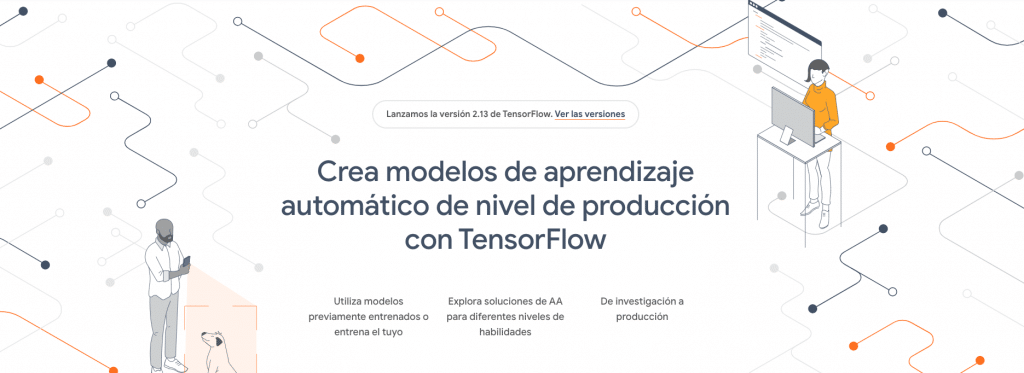If you don't know the difference between an ERP (Enterprise Resource Planning) system and a CRM (Customer Relationship Management) system, here's what you need to know about the [...]
Read More »Deep learning translates as deep learning and is a type of artificial intelligence (AI) that is encompassed within machine learning and has proven to be very effective in pattern recognition, data classification and decision making.
It trains a system to perform tasks as any human being can perform them. Instead of organizing data to run through predefined rules, deep learning defines basic parameters from the data.
At first glance, it may seem that the Deep Learning and that the Machine Learning are the same, but they are not.
Deep learning and machine learning are subfields within the broader field of artificial intelligence (AI). They are both used to train computer systems to perform specific tasks, but there are some differences between them, as we can see in this article.
Autonomy is the major difference between these two types of AI. Machine learning uses algorithms to analyze data, learn from that data and make decisions based on what it learns, while deep learning - which is part of the former - uses artificial neural networks with several layers of neurons, which makes them more complex but also allows them to learn and make decisions on their own.
Machine learning is mainly used for tasks involving the analysis and classification of structured data, while deep learning is used for more complex tasks, such as natural language processing or computer vision.
Today, there are numerous deep learning applications and software that can help researchers, developers and companies take advantage of this technology.
Here are some of the best tools for creating software based on deep learning:

TensorFlow is an open source library for deep learning developed by Google. It is very popular due to its ease of use, flexibility and scalability. It can run on a variety of platforms, including mobile devices and distributed systems.
PyTorch is another popular deep learning framework. It is known for its ease of use and its ability to rapidly prototype. It is also very flexible and can run on a variety of platforms.

Keras runs on TensorFlow. It is very easy to use and is designed to facilitate the creation and training of deep learning models. Keras also supports a variety of neural network architectures.

Caffe developed by the Berkeley Vision and Learning Center research team. Known for its speed and efficiency, it is ideal for real-time applications and mobile devices. It has established itself as one of the best deep learning software, and thanks to its ease of use and seamless integration with popular programming languages, it has become the preferred choice for both researchers and developers in the field.

Theano is developed by the University of Montreal and is known for its efficiency and ability to optimize the computation of mathematical operations necessary for training deep learning models.

This software has been developed by Facebook and other partners. Torch is known for its ease of use and its ability to rapidly prototype. Torch is also very flexible and can run on a variety of platforms.
It is necessary to take into account the needs to be covered and the type of activity to be performed before choosing a software or libraries to help us implement algorithms based on deep learning, so it is necessary to contact qualified professionals with the necessary experience and training.
At Gamco, there will always be professionals ready to offer help and information as well as to provide our Artificial Intelligence solutions adapted to the needs to be covered at all times.
If you don't know the difference between an ERP (Enterprise Resource Planning) system and a CRM (Customer Relationship Management) system, here's what you need to know about the [...]
Read More »Big data analytics is the process of analyzing large and complex data sources to uncover trends, patterns, customer behaviors, and other data sources [...]
Read More »In the dynamic financial world, optimizing the return on available assets is essential to the success of any lender. Gam [...]
Read More »In this article we are going to focus on how artificial intelligence (AI) can increase efficiency and reduce costs for your company by [...]
Read More »